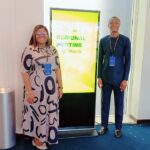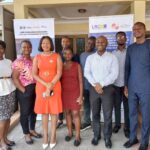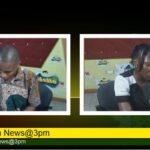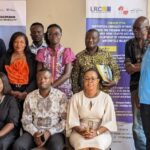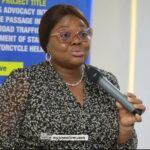Legal Resources Centre (LRC), a Non-Governmental Organization (NGO), has trained selected journalists in Bolgatanga, Upper East Region, on climate change and renewable energy best practices.
The core mission of the LRC is to develop human rights within communities it operates, works to ensure social progress and development through use of law, justice, development, and good governance.
The aim of the training was to build capacity of journalists as Energy Media Ambassadors on relevant laws, climate change and energy transition to enable them churn outuseful content and advocate for clean energy to mitigate the devastating impact of climate change.
The training was under a project dubbed: “Awareness creation on climate change and energy transition in Upper East Region,” funded by the Africa Centre for Energy Policy.
The project sought to rally citizens’ support for the government to implement its targets in the National Energy Transition Framework (NETF) by 2070.
Mr Enock Jengre, Programmes Officer, LRC, who took journalists through the relevant laws and policies on climate change and renewable energy best practices, said Ghana had over the years experienced devastative impact of climate change.
According to him, one of the ways of overcoming the menace is to shift from use of fossil fuels in generating energy, towards the adoption of renewable energy best practices such as wind, solar, hydrothermal, among others.
He recalled that in 2022, the Government of Ghana launched the NETF in Egypt, and said during the Conference of Parties (CoPs), the said framework aimed to ensure that the country’s transitions towards the adoption of renewable energy best practices were based on the various set targets.
He said fossil fuel use in Ghana was expensive and stressed the need for a shift from fossil fuel to renewable energy such as solar.
Mr Jengre said the weather patterns in the Upper East Region indicated hot temperatures and suggested that the high sunshine in the Region could be converted into solar energy to benefit residents.
“Imagine we have about 20 megawatts of energy generated by virtue of solar in the Upper East Region, that can solve our energy situation in the Region because of the weather patterns here.
“These are some of the things that the Legal Resources Centre is looking at, to ensure that we make use of what we have in our environment. So Upper East Region is a good place for case study in terms of how we can make clever use of the energy transition process,” he said.
Mr Jengre said per the targets in the NETF to be achieved by 2070, “It indicates that by 2030, Ghana, in terms of electrification across the country, we should have achieved 98 per cent.
“Currently, the percentage is between 76 and 78 across the country. But by 2030, we should be able to achieve 98 per cent. For it to be achievable, will depend on us the people and government’s commitment towards electrifying our communities that do not have electricity,” he said.
The Programmes Officer added that there was the need for journalists to sensitize the citizenry on the benefits of using renewable energy appliances.
Some participants after the workshop, told the Ghana News Agency that they would play their role as journalists to ensure that members of the public were furnished with the right information to help government to implement its targets in the NETF.
Source: https://gna.org.gh/2023/12/lrc-trains-journalists-on-best-practices-on-renewable-energy-in-bolgatanga/?g=41a3378cb897f7e5fa19c8fd8a2ff062
